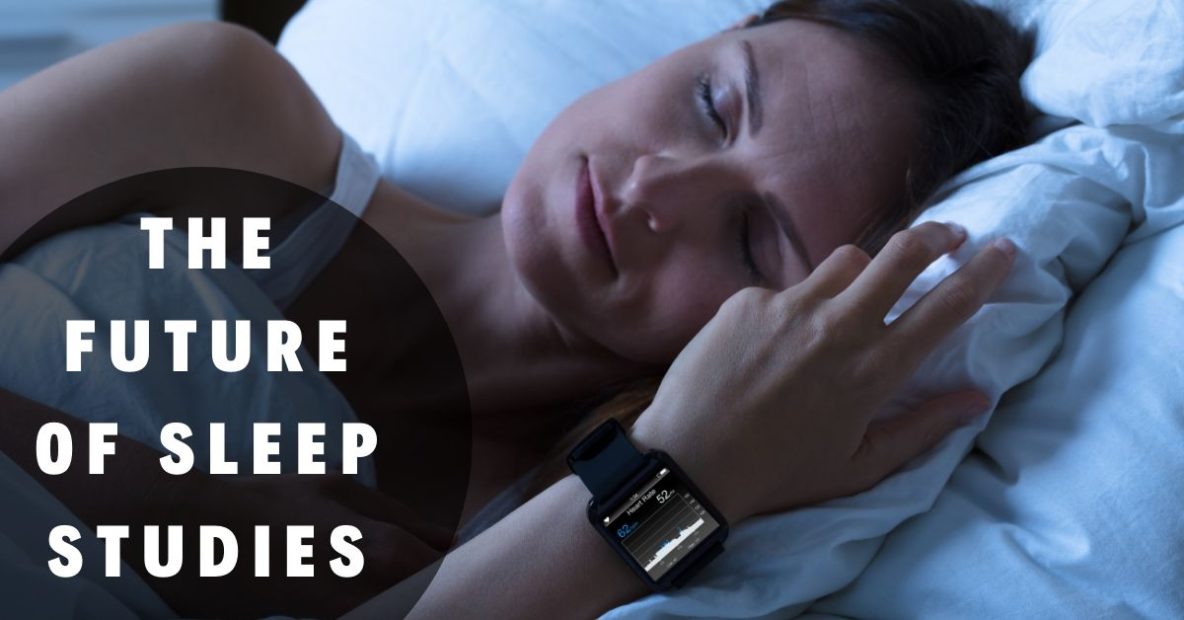The Future of Sleep Studies

- A Promising Paradigm Shift: New Research Challenges the CPAP-First Approach to OSA Treatment - September 5, 2023
- Understanding Sleep Meditation Techniques - July 30, 2021
- How Online Learning Has Affected Sleep for Students - July 13, 2021
Have you ever wondered how researchers perform sleep studies? Is the information they collect accurate? Most sleep studies are performed in a lab, and participants sleep overnight hooked up to monitors that allow researchers to track their sleep. That could soon be changing, and researchers may soon be getting more accurate data on sleep.
The Future of Sleep Studies
Charlene Gamaldo, M.D. is the medical director of the Johns Hopkins Center for Sleep at Howard County General Hospital. According to Gamaldo, new technology is changing the future of sleep studies, and opening up a whole new world of possibilities. “The brick-and-mortar model of conducting sleep studies in a medical care center is really going to be fading into the sunset or will be minimal at best,” explains Gamaldo. New models of testing, using new technology, will allow researchers to collect data on sleep while allowing participants to sleep in the comfort of their own homes.
Lab studies are still useful in some instances, because having all participants sleep in a controlled environment, away from distractions or other interferences, will provide more consistent data. Some studies also require more technically detailed monitoring that can’t be performed by the at home devices.
The Future of At-Home Sleep Testing Technology
At-home sleep testing technology is revolutionizing the way we study sleep, and these portable devices can monitor sleep patterns, restlessness, night-time breathing, and even heart rate. Not only that, but some monitoring devices can measure brain wave activity during sleep, showing researchers how quickly you fall asleep, how deep your sleep is, how much time per night you spend in REM sleep, and if the quality of your sleep is good or bad. These sleep testing devices can also look for signs of restless legs syndrome, track movements during the night, and even diagnose sleep apnea or other sleep disorders.
Testing sleep in a lab has provided invaluable insights to doctors and researchers, but no one denies that sleeping in a lab will have an effect or your normal sleep patterns. Testing sleep in the comfort of your own home will give researchers a better understanding of sleep, and allow doctors to monitor your sleep to easily look for signs of sleep disorders, or discover why you’re not waking up feeling well rested.
Can Cellphone Apps Monitor Sleep?
Your friends have started talking about smartphone apps that monitor the quality of your sleep, track how many hours you sleep per night, and how many times you’ve woken up. These apps are often relatively accurate, and are getting better at detecting problems in sleep, such as snoring or restless nights. “We hope to eventually correlate the information with actual features of sleep disorders,” says Gamaldo, “which could indicate the presence of conditions like sleep apnea.” Just a few years ago, this was a sleep disorder that could only be tested and diagnosed in a sleep lab, but Gamaldo is hopeful that even cellphone apps could soon diagnose disorders.
If you’re using a sleep app, be sure it’s from a reputable source, and is providing you with accurate data. Before scientists will be able to use apps to track sleep, they’ll need to do a lot of testing to validate the results, and see if the apps are doing what they claim to do. Until then, researchers and doctors will continue to use at-home sleep testing technology to get an accurate picture of your sleep.
Future Fields of Sleep Study
As researchers are able to make use of at-home testing, there’s an increased push to learn more about sleep disorders like sleep apnea, restless leg syndrome, and insomnia. More data is available then ever before, and researchers continue to learn about the effects of not getting enough sleep.
Sound Sleep Medical
Chronic lack of sleep is widespread, and millions of Americans are sleeping less than 7 hours per night. Rather than sleeping soundly, many people spend hours every evening staring at computer, TV, and phone screens that emit blue light which interferes with the natural sleep cycle. Life stressors and busy schedules also contribute to sleep deprivation and fatigue.
If you’ve been struggling to get a good night’s sleep, visit us today at Sound Sleep Medical to find out more about sleep disorders, and how to build healthy sleep habits that will help you sleep soundly every night.
